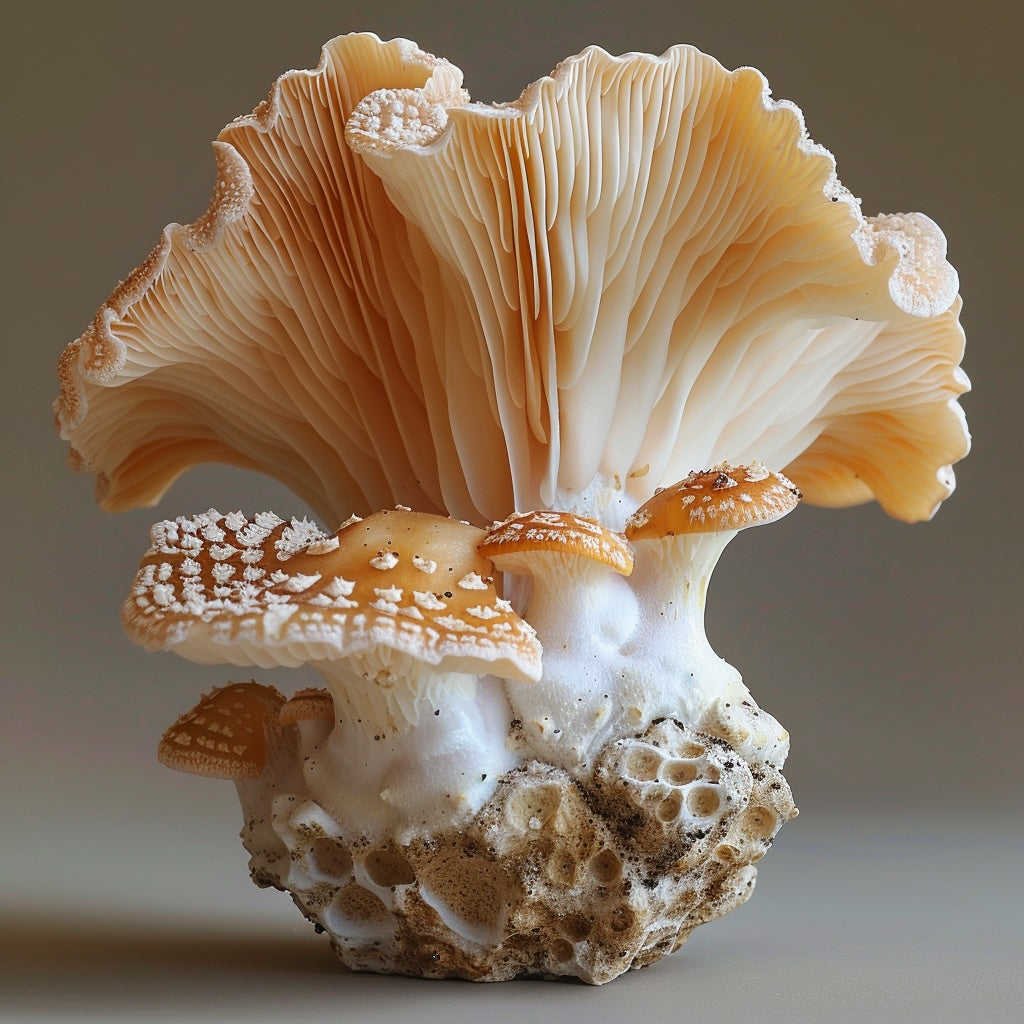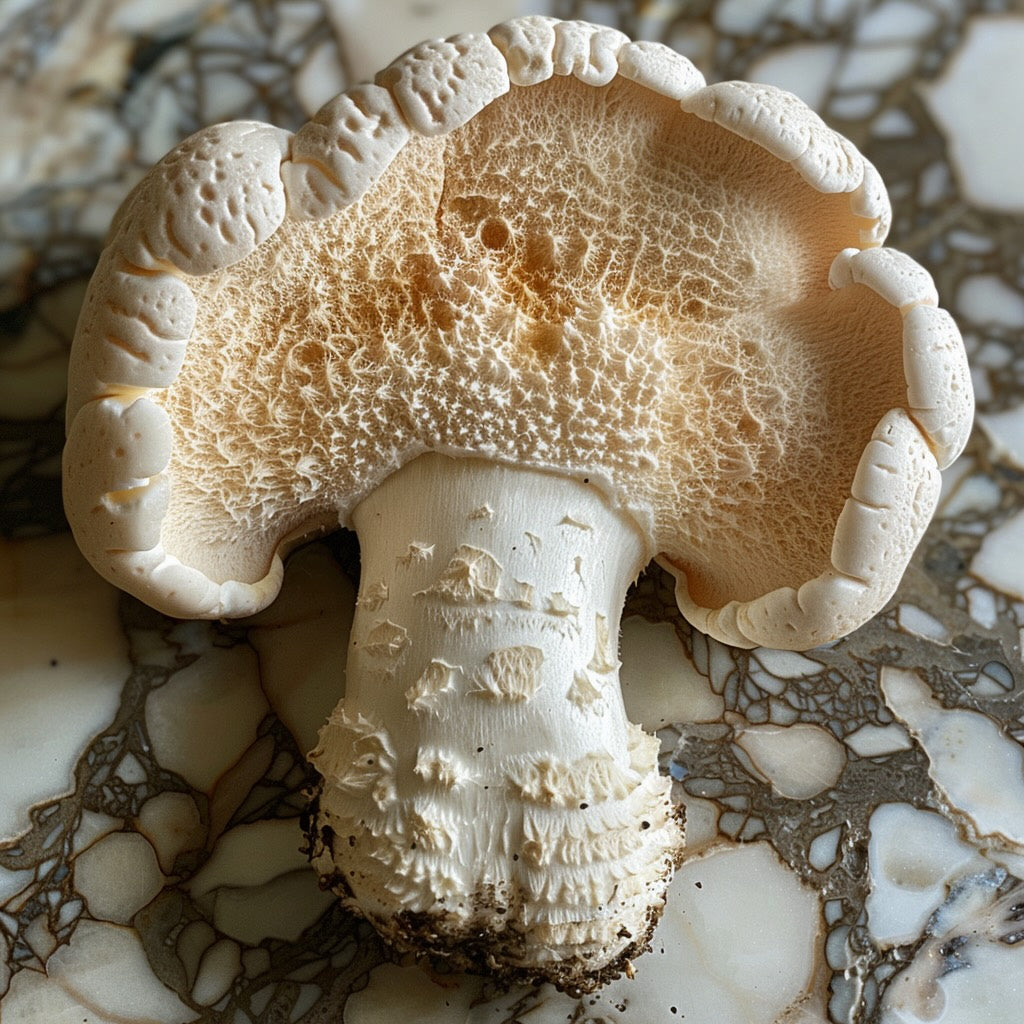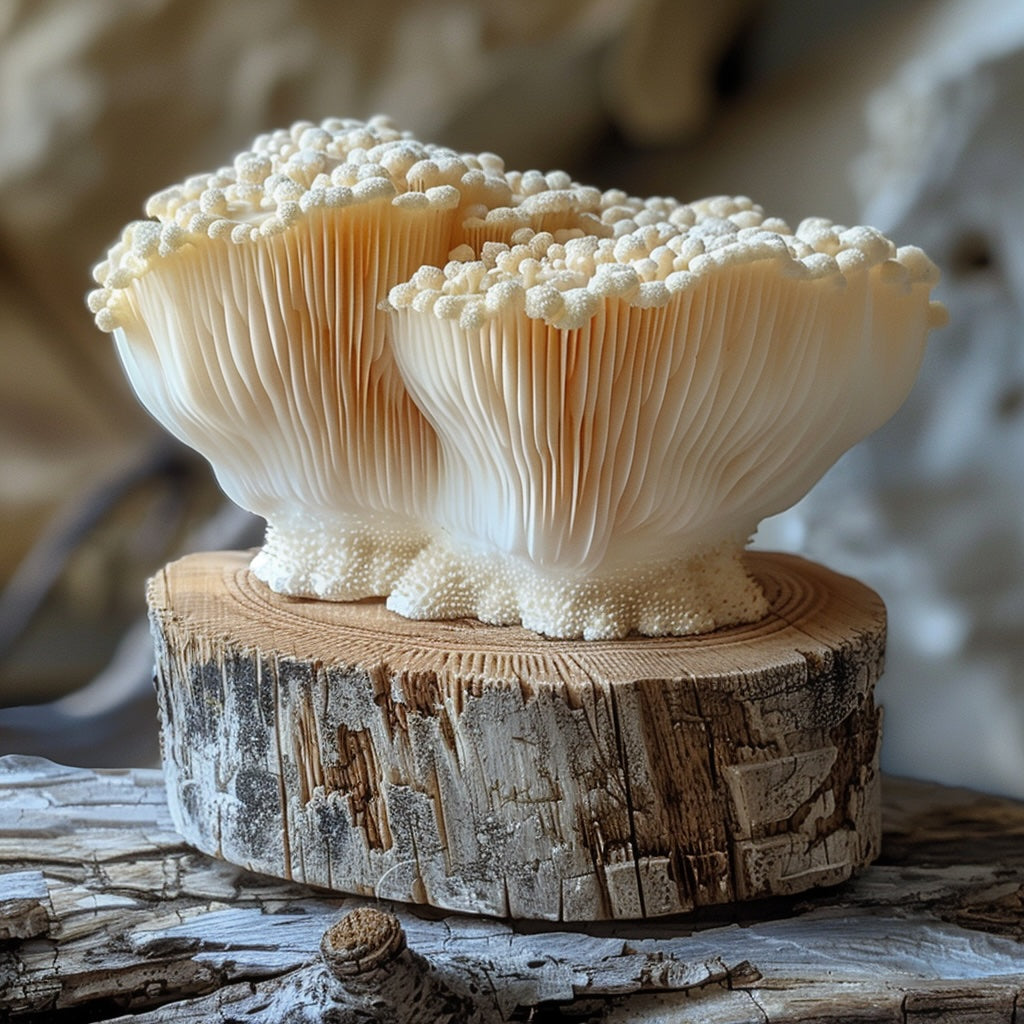Lion's Mane mushroom (Hericium erinaceus) has long been revered in traditional Eastern medicine for its cognitive and neurological benefits. In recent years, this fascinating fungus has caught the attention of the Western world, not just for its potential to promote brain function but also for its potential relationship with GLP-1 (Glucagon-like Peptide-1) and other health benefits.

The Cognitive Champion: Lion's Mane
Lion's Mane is distinguished by its unique, shaggy appearance, resembling a lion's mane as it grows. This mushroom is rich in bioactive substances believed to support brain health, including hericenones and erinacines, which may stimulate the growth of brain cells.* Lion's Mane supplements have become popular among those seeking to naturally support their cognitive function, including memory, focus, and mental clarity.
Lion's Mane and GLP-1: An Emerging Connection
While best known for its cognitive benefits, Lion's Mane has also been explored for its potential impact on GLP-1, a hormone involved in regulating blood sugar levels and insulin sensitivity. Although research is still in its early stages, preliminary studies suggest that compounds in Lion's Mane may influence GLP-1 secretion, which could have implications for metabolic health support.* This connection highlights the mushroom's versatility and potential as a multi-faceted supplement.

Lion's Mane Supplements: Brain Health and Beyond
Lion's Mane is available in various forms, including capsules, powders, and teas, making it accessible for daily supplementation. Users often report a change in mental acuity and sometimes in mood and anxiety levels, though individual experiences can vary. As with any supplement, it's essential to choose high-quality products to ensure you're getting the most potent form of this remarkable mushroom.
Other Interesting Facts about Lion's Mane
- Potential Neuroprotective Properties: Beyond cognitive support, Lion's Mane is being researched for its potential neuroprotective effects, particularly in the context of some neurodegenerative conditions.
- Support for Gut Health: Emerging research suggests that Lion's Mane may also benefit the gut-brain axis, supporting gut health and possibly influencing mood and cognitive function through this pathway.*
- Historical Use: Lion's Mane isn't just a modern discovery. It has been consumed in Asia for centuries, both as a medicinal mushroom and a gourmet ingredient, valued for its lobster-like taste when cooked.

Lion's Mane mushroom stands out not only as a nootropic but also as a subject of interest for its potential metabolic and neuroprotective benefits.* As research continues to reveal the multifaceted effects of this mushroom, Lion's Mane supplements are increasingly becoming a go-to choice for those looking to support their cognitive health.* With its promising connection to GLP-1 and a host of other benefits, Lion's Mane is a testament to the power of natural substances may help support overall well-being.
As always, talk to your doctor before taking any supplements. Get professional advice if you think you might need any lion's mane supplement or are already taking one to ensure you're not exceeding the amounts you may need.


















































